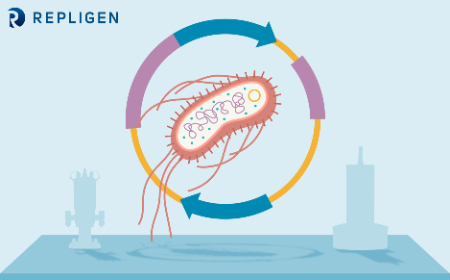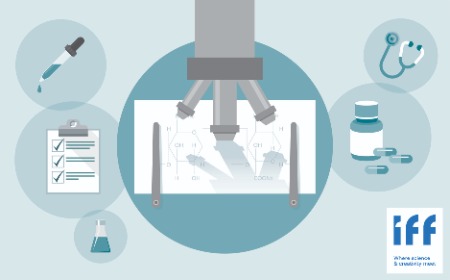Lung cancer is the leading cause of cancer death worldwide, with non-small cell lung cancer (NSCLC) comprising approximately 85% of cases. In addition to chemotherapy, targeted treatments including epidermal growth factor receptor inhibitors (EGFRi), have emerged as an additional therapeutic strategy. However, patients frequently develop resistance to these therapies. Novel therapies to overcome resistance are being explored, such as combination immunotherapy with natural killer T (NKT cells), a subtype of T cells sharing characteristics of both the innate and adaptive immune systems.
We tested the hypothesis that EGFRi treatment reduces cancer-mediated immunosuppression, sensitizing the tumor cells to NKT-mediated cytolysis. First, we treated 2D monolayer and 3D spheroid cultures of A549 lung cancer cells with increasing concentrations of cisplatin, a chemotherapeutic, as well as the EGFRis gefitinib and/or erlotinib. Cancer spheroids were more resistant to treatment with all compounds, but all compounds effectively killed tumor cells, particularly in combination. Supporting the immunosuppression hypothesis, EGFRi treatment alone or in combination with cisplatin decreased vascular endothelial growth factor (VEGF) secretion in a dose-dependent manner.
Finally, we evaluated combination therapy using the Axion BioSystems Maestro Z to quantify NKT cell-mediated cytolysis of lung cancer spheroids, both alone or in combination with EGFRi treatment. While NKT cells were mildly cytotoxic alone, gefitinib addition increased cytolysis in a dose-dependent manner. In conclusion, these results support the therapeutic potential of combination immunotherapy and immunomodulation to treat lung cancer.
- Current status of non-small cell lung cancer treatment
- Cell therapy using NKT cells and in combination with EGFR inhibitors
- Cancer spheroid models and the importance of modeling the tumor microenvironment
- Using the Maestro Z live-cell analysis platform to evaluate potency of cell therapies against cancer spheroids and monolayers, label-free and in real time

Tonya J Webb
Associate Professor, Department of Microbiology and Immunology at University of Maryland School of Medicine
Dr. Tonya J. Webb is a tenured Associate Professor at the Department of Microbiology and Immunology at the University of Maryland School of Medicine (UMSOM). She earned her B.S. in Biology/Chemistry at Prairie View A&M University. She completed a doctoral degree in Microbiology and Immunology at Indiana University, with studies focused on investigating the role of CD1d1 molecules and NKT cells in antiviral immunity. Her post graduate work includes postdoctoral fellowships at Indiana University School of Medicine and at Johns Hopkins School of Medicine.
Dr. Webb’s academic career at UMSOM has included positions of increasing responsibility in Microbiology and Immunology; studies on oncology at the Greenebaum Comprehensive Cancer Center (UMGCCC); and as a member of the Center for Stem Cell Biology and Regenerative Medicine. She currently serves as the Assistant Director of the Inclusion, Diversity, Equity, and Accessibility (IDEA) Program at the UMGCCC.
She has received numerous honors and awards throughout her career, including those from the NIH, AACR, and a host of professional and academic societies. She founded a biotech company, WebbCures, LLC in 2016. Dr. Webb also contributes significant time to local and national service to increase diversity and equity in academic medicine and healthcare. She enjoys mentoring and sharing her experiences with STEM scholars and aspiring scientists.
David Ferrick
Chief Scientific Officer at Axion BioSystems
David Ferrick has 25 years’ experience commercializing life science products into new and emerging markets based on nascent technologies. He also has brought to market IVD diagnostic tests and advanced several drug development programs from discovery through preclinical testing.
David Ferrick began his career as an Immunology professor at the University of California Davis, then entrepreneur and currently industry executive focused on life sciences tools, drug discovery and diagnostics specifically in the areas of immunology and cancer. He has authored over 150 peer reviewed publications, inventor on 20 patents along with numerous high-profile articles and interviews. Dr. Ferrick received his Ph.D. in Microbiology and Immunology from Georgetown University in Washington D.C.
Stacie Chvatal
Director of Product Management at Axion BioSystems
Stacie Chvatal is the Director of Product Management at Axion BioSystems. Dr Chvatal earned a Bachelor of Science in Engineering from Mercer University and a PhD in Biomedical Engineering from the Georgia Institute of Technology and Emory University. She completed a post-doctoral fellowship in the Wallace H. Coulter Department of Biomedical Engineering at GA Tech and Emory, studying neural control mechanisms governing muscle coordination. Since 2013, she has worked at Axion BioSystems, a leading life science tools company, developing innovative live-cell assay instruments used to study the function of cells in vitro for drug discovery, disease modeling, cancer immunotherapy, safety/toxicity, and more. She now leads the product management team, guiding the development of new products and features to help researchers and drug developers achieve their goals.









